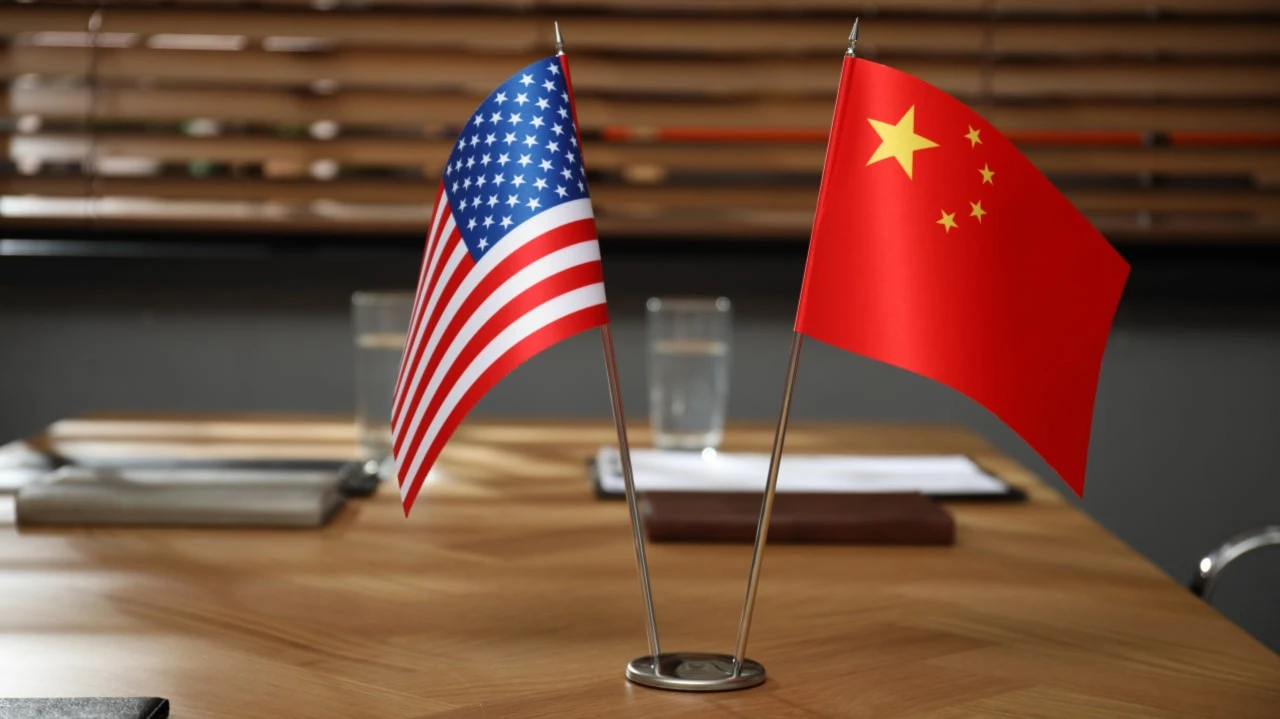Highlights for the morning: US-China deal, cuts at Google, Meta in pursuit of AI

The U.S. and China have reached a tentative trade agreement, including on rare earth metals, which could ease bilateral trade tensions. Google is offering voluntary severance packages to employees as part of another round of optimization focused on AI infrastructure development. Moody's warns that the growing participation of retail investors in private lending poses new risks ranging from asset quality deterioration to liquidity problems. On these and other topics - in our review of key developments for the morning of June 11.
U.S. and China reach tentative trade agreement
The U.S. and China agreed on a tentative plan to ease trade tensions that could restore shipments of sensitive goods between the world's two largest economies, reports Bloomberg. U.S. and Chinese negotiators in London said the two sides agreed on a framework for implementing the agreements reached at the last round in Geneva. The proposals will now be passed on to the leaders, said Li Chenggang, head of China's delegation.
While details of the agreement have not yet been disclosed, U.S. officials said they are "absolutely confident" that the dispute over rare earth supplies will be resolved. "Once the presidents approve the document, we will move to implement it," U.S. Commerce Secretary Howard Lutnick told reporters after two days of talks that lasted nearly 20 hours.
Meta is investing $14-15 billion to poach the head of Scale AI
Mark Zuckerberg is so disappointed with Meta's current position in artificial intelligence that he is ready to spend billions of dollars to convince Scale AI CEO Alexander Wang to join the tech giant, writes CNBC, citing sources familiar with the situation. Earlier Bloomberg wrote that the amount could exceed $10 billion, and The Information specified that we are talking about almost $15 billion.
Wang is the founder of one of the most notable AI startups and is known as an ambitious leader who understands both the technical aspects of AI and building a sustainable business. According to two former Meta AI employees, Wang is capable of breathing new life into the company's ambitions after the tepid launch of Llama's latest models.
Meta is not acquiring Scale AI directly, but is following the strategy of Google and Microsoft, which have invested in startups such as Character.AI and Inflection AI, gaining large stakes without a takeover. Given the antitrust lawsuit against Meta by the Federal Trade Commission, buying Scale AI could lead to increased regulatory pressure.
According to The Information, Meta will take a 49% stake in Scale AI, and Wang will lead Meta's new AI research division along with part of his team.
Meta and Scale AI declined to comment to CNBC.
Moody's concerned about private investor participation in private credit
Rapid growth in retail investment in the private credit sector could create liquidity risks and asset quality deterioration, Moody's Ratings warned, reported Reuters.
The pursuit of private investors is transforming the traditionally institutional private credit market: asset managers are launching new funds focused on retail demand, and companies are rushing to deploy capital amid a limited supply of quality assets. However, this shift raises concerns about transparency, liquidity and underwriting standards, Moody's says.
According to the rating agency, private markets are gaining popularity as the number of public offerings is decreasing and more and more companies prefer to leave the stock exchange. Institutional investors, meanwhile, face restrictions on how much they can invest. "Under the current U.S. administration, the approach to regulating private markets has changed: the priority has shifted from tightening disclosure requirements to accelerating capital raising," the agency said in its report.
To meet retail investors' expectations of quick liquidity, managers are offering products with periodic withdrawal windows. However, in a volatile environment, a surge in withdrawal requests could overwhelm such funds, causing a mismatch between available liquidity and investor expectations, Moody's warns.
The agency also notes that as competition for quality assets intensifies, some managers may take higher risks by investing in less reliable instruments to keep up with growing demand.
Google offers voluntary layoffs to employees in the U.S.
Google on Tuesday offered a voluntary separation program (buyouts) to employees in several divisions, including Knowledge & Information (K&I) teams, the central engineering group, and marketing, research and communications, reports CNBC. The K&I division includes the company's key areas of search, advertising and e-commerce and employs about 20,000 people.
This is another attempt by Google to reduce its workforce - the company has been doing so in waves since laying off 12,000 people in 2023. CNBC was unable to confirm the exact number of employees affected by the new program. The Information confirms that severance packages have been offered to employees from search and advertising.
"Earlier this year, some of our teams launched a voluntary exit program with compensation for U.S. employees. Now others are joining them to support our work going forward," Google spokeswoman Courtney Mencini told CNBC.
What's in the markets
Asia-Pacific markets rose Wednesday following reports of a trade agreement between the U.S. and China, reports CNBC.
- Mainland China's CSI 300 index added 0.77 percent, while Hong Kong's Hang Seng added 0.9 percent.
- Japan's Nikkei 225 index was up 0.45%, while the broader Topix index was unchanged.
- In South Korea, the Kospi index rose 0.71%, approaching a 3.5-year high during the session, while the Kosdaq small-company index jumped 1.71%.
- Australia's S&P/ASX 200 was up 0.29%, briefly hitting a record in early trading.
- India's Nifty 50 index added 0.11% at the open.
- U.S. stock futures traded flat - in addition to details on the agreement between the U.S. and China, investors are waiting for the publication of key inflation data for May.
